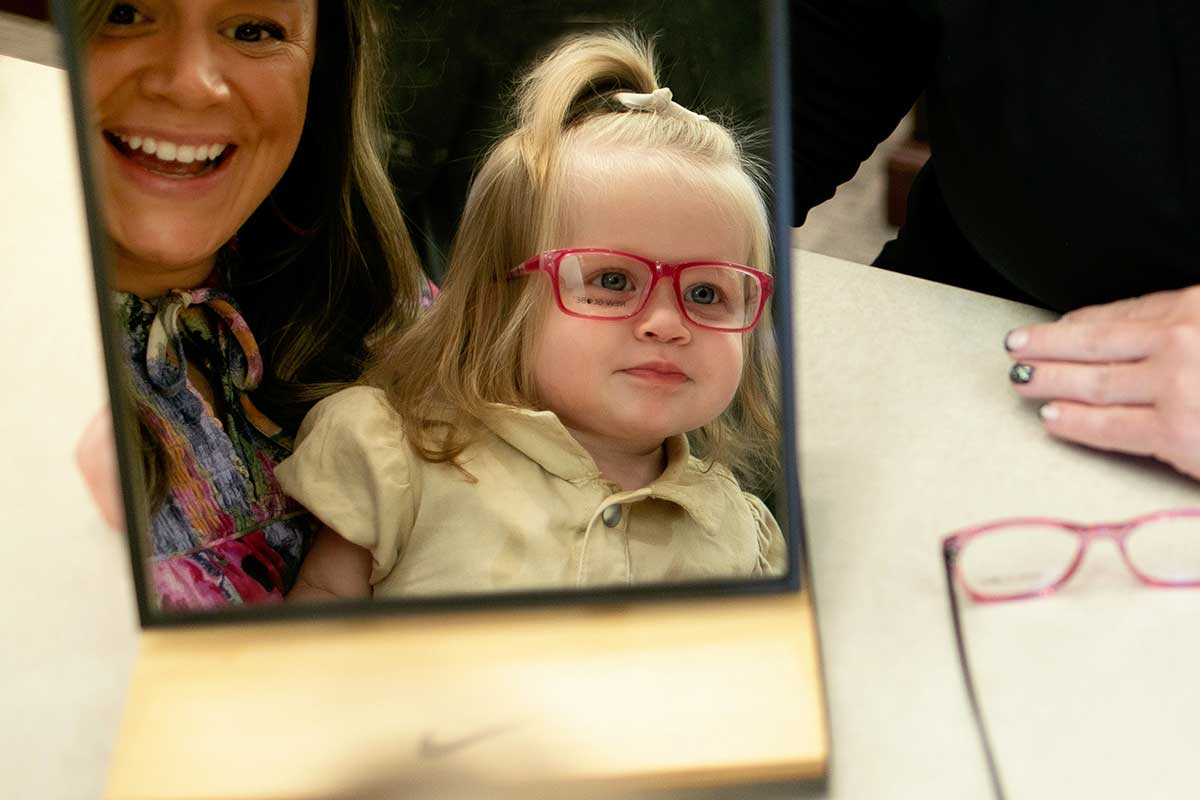PEDIATRIC EYE CARE
You want the best for your child, especially when it comes to caring for their eyes. The doctors and staff at Andover Family Optometry and Winfield Family Optometry are passionate about caring for young eyes and will go the extra mile to ensure your kiddo feels comfortable during their visit.
Signs Your Child is Having Trouble Seeing
Although many visual concerns are detected by a primary physician during a well-child visit. Sometimes, they are more subtle.
If you think your child may have visual difficulties and is experiencing any of the following visual concerns, we highly recommend you bring them to see an eye doctor right away. If left untreated poor vision may impact your development.
- Squinting to see
- Turning or tilting their head or covering/closing one eye
- Asking to be very close to the television or electronic devices
- Avoids closeup work like reading or coloring
- Rubbing their eyes a lot
- Headaches and eye pain
- Light sensitivity
- Poor coordination
- Trouble reading or poor academic performance

When should my child have an eye exam?
Children should be seen whenever an eye or visual concern is detected. Although almost all pediatricians perform visual tests in their offices, children should also be seen by an eye doctor throughout their life.
Ideally, children should receive an eye exam between 6-12 months of age, at age three, and every other year thereafter.
Pediatric Eye Exams
Although it may seem scary to have your child’s eye checked for the first time, let us assure you, your child will be kept as comfortable as possible throughout the process.
We will begin by getting your child’s full medical history and discussing any concerns that bring you into our office. Then we will conduct a series of tests to check your child’s eye health.
One question we are frequently asked is, “is dilation required?”
The answer is yes. Dilation is necessary to help our doctors see the back of your child’s eyes and check the muscles inside their eye.
It’s important to know that dilation drops do not sting, but your child may think they feel funny at first. Some fussing and complaining is normal, especially in younger patients however they usually calm down quickly. Most patients experience sensitivity to light after having their eyes dilated, so we recommend you bring a pair of sunglasses with you to your appointment.
Lastly, we will check your child’s visual acuity to determine how well they see and whether they need glasses.
Pediatric Eye Conditions Our Doctors Treat
Our doctors have a lot of experience treating a wide variety of pediatric eye conditions. Some of the most commonly treated concerns include
- Strabismus
(sometimes referred to as “lazy eye”) - Amblyopia
- Myopia (nearsightedness)
- Hyperopia (farsightedness)
- Reflective errors
- Astigmatism
- Nystagmus
- Ptosis
Glasses and Contact Lens Prescriptions
If your child is in need of vision correction and requires eyeglasses or contact lenses, you can fill them at our in-house optical lab.
We have a wide variety of adorable child-size frames to fit even the smallest of heads.
Stop by today to see our selection!
If you’re interested in receiving a laser eye surgery consultation, call our Andover Team at
(316) 361-1020, our Winfield Team at (620) 221-2015, or schedule an appointment online!
